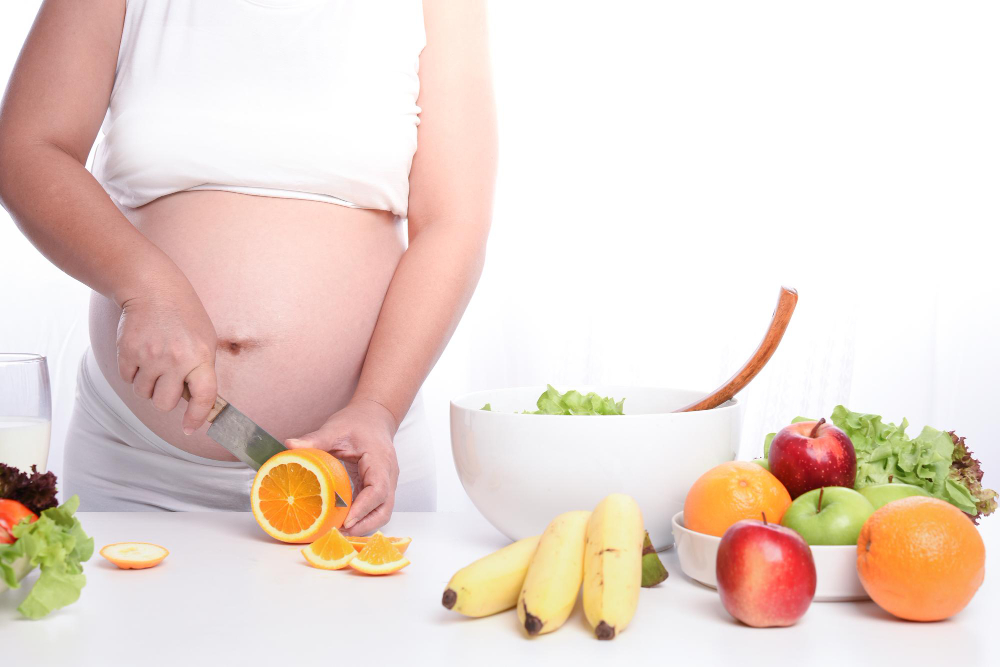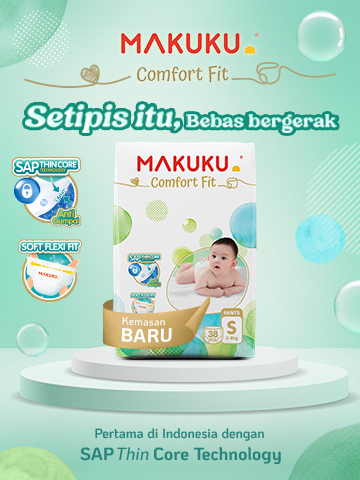
Moms, early pregnancy or the first trimester is a time full of happiness as well as challenges. During this period, your body is adapting to many hormonal changes, while the little one in the womb begins to form vital organs. Therefore, maintaining a healthy diet becomes very important.
In addition to increasing nutritious food, you also need to know that there are some foods that pregnant women should avoid. It's not just about the mother's health, but also for the optimal growth and development of the fetus.
So, what are the food restrictions during early pregnancy that should be avoided? Let's take a look at the complete list below!
Foods to Avoid During Early Pregnancy
1. Raw & Undercooked Food
Some people may enjoy dishes such as sushi, sashimi, medium-rare steak, soft-boiled eggs, and raw seafood. However, during early pregnancy, moms should avoid these foods.
Raw foods carry a high risk of containing Salmonella, E. coli, or Toxoplasma parasites. Infection from these microbes can affect pregnancy, cause food poisoning, and even increase the risk of miscarriage.
2. High Mercury Seafood
Seafood is rich in omega-3, which is good for fetal brain development. But not all fish are safe, Moms. Some types of fish such as shark, swordfish, marlin, king mackerel, and bluefin tuna contain high levels of mercury.
Mercury can have adverse effects on your little one's nervous system. Therefore, choose fish that are low in mercury, such as salmon, sardines, catfish, or mackerel, which are safer to consume.
3. Certain Vegetables & Fruits
Although rich in vitamins, there are some fruits and vegetables that should be limited during early pregnancy:
- Young pineapple: at risk of triggering uterine contractions.
- Raw papaya: contains natural latex that can cause miscarriage.
- Excessive durian: high in sugar and natural alcohol that can trigger increased blood pressure.
- Raw bean sprouts and vegetables: easily contaminated with bacteria if not washed thoroughly.
To be safe, moms can consume healthy fruits recommended in the article on fruits that are prohibited for pregnant women and fruits high in fiber.
4. Unpasteurized Milk & Dairy Products
Products of raw or unpasteurized milk such as fresh milk that has not been heated, soft cheese (brie, camembert), or unpasteurized yogurt can contain Listeria bacteria. This infection is dangerous for the fetus and can cause serious complications. Choose dairy products that have undergone pasteurization for greater safety.
5. High-Caffeine Drinks
Coffee and tea are often faithful companions, but during early pregnancy it is best to limit caffeine consumption. Coffee, high-caffeine tea, energy drinks, and soda can increase the risk of dehydration, irregular heartbeat, and even interfere with fetal development.
Moreover, several studies show that excessive caffeine consumption can increase the risk of miscarriage in the first trimester.
6. Alcohol
This is a major no-no for pregnant women. Alcohol can cross the placenta and affect fetal brain development. Alcohol consumption during pregnancy can cause fetal alcohol syndrome, which affects the physical, mental, and behavioral growth of your little one. So, it's best to avoid it altogether.
7. Fermented & Unhygienic Food
Some traditional fermented foods such as cassava tape or sticky rice tape contain natural alcohol. Excessive consumption poses a risk to the fetus.
In addition, unhygienic street food can also be contaminated with harmful bacteria. For the sake of a healthy pregnancy, choose foods that are guaranteed to be clean.
8. Junk Food & High-Fat Foods
Moms, who isn't tempted by burgers, pizza, or French fries? However, fast food is high in saturated fat, sugar, and salt, which can affect your health and that of your fetus.
Excessive consumption can increase the risk of obesity, gestational diabetes, and high blood pressure. Remember, your fetus needs balanced nutrition, not empty calories.
9. Canned Food & High Preservatives
Canned food often contains sodium, MSG, and other preservatives that are not good for fetal health. Long-term consumption can increase the risk of metabolic disorders and hypertension during pregnancy.
10. Snacks High in MSG & Carbonated Drinks
Snacks rich in MSG and carbonated drinks are not only low in nutrients but can also cause bloating, dehydration, and digestive issues. The restriction on carbonated drinks for young pregnant women is often underestimated, even though it can disrupt your comfort during the early trimester.
Moms, here is the complete list of foods that should be avoided by pregnant women, especially during the first trimester. By paying attention to your intake, you can help your little one grow healthier and reduce the risk of pregnancy complications.
In addition to avoiding harmful foods, make sure you increase your consumption of nutritious, balanced foods. You can read additional references in the article healthy food for pregnant women so that your daily nutritional needs are well met.
And don't forget, taking care of your little one's health is not just about food, but also daily care. One of the best recommendations to support your little one's comfort is MAKUKU Slim, a premium thin diaper at 1.6 mm with SAP Thin Core technology that absorbs maximally, is anti-clump, and keeps the baby's skin dry.
Belly Button U-Shape feature protects the newborn's navel, while the urine indicator helps Moms easily monitor when to change the diaper. With a 3D surface and air cavities, this diaper keeps the baby's skin moist, healthy, and irritation-free.
Reference
- American Pregnancy Association. (2023). Foods to Avoid During Pregnancy.
- Mayo Clinic. (2024). Healthy diet during pregnancy: Focus on the essentials.
- National Health Service UK. (2024). Foods to avoid in pregnancy.







